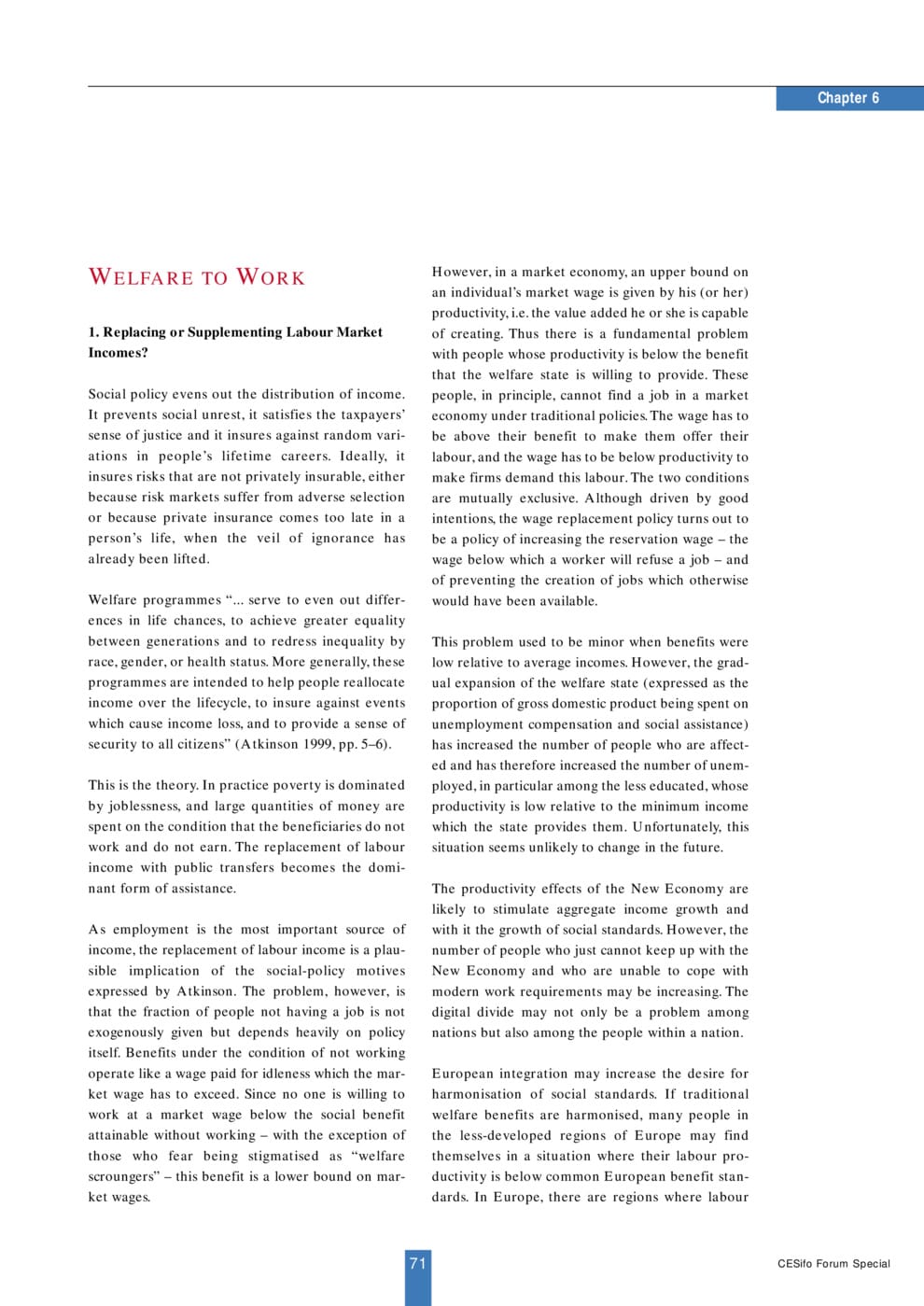Welfare to Work
Ifo Institute for Economic Research, Munich, 2002
in: EEAG European Economic Advisory Group at CESifo: Report on the European Economy 2002 (CESifo Forum Special), 71-86

This chapter argues that traditional social programmes of the modern welfare state have concentrated on replacing the earnings which are not enjoyed by those without jobs.This offers an incentive to those capable of earning only very low wages to qualify for (higher) benefits by declining jobs which, as a result, are also not offered. An alternative is developed, already implemented in varying degrees in a number of countries, in which tax credits are used to supplement the wages available to low productivity workers – whose benefits when not in work may also be reduced after a period of joblessness. Traditional social insurance schemes used also to offer higher benefits for limited periods and this feature, too, should be reemphasised. A fairly detailed proposal is put forward on a basis which should allow the living standards of both the working and most of the non-working poor to rise at no net cost to governments while raising employment output and growth. In essence, it implies requiring government work in exchange for existing welfare benefits, cutting welfare benefits for those who do not work although they are classified as being able to, and paying a wage subsidy to those who take low-paid jobs in the private sector. Finally,
Included in
EEAG European Economic Advisory Group at CESifo: Report on the European Economy 2002
Ifo Institute for Economic Research, Munich, 2002